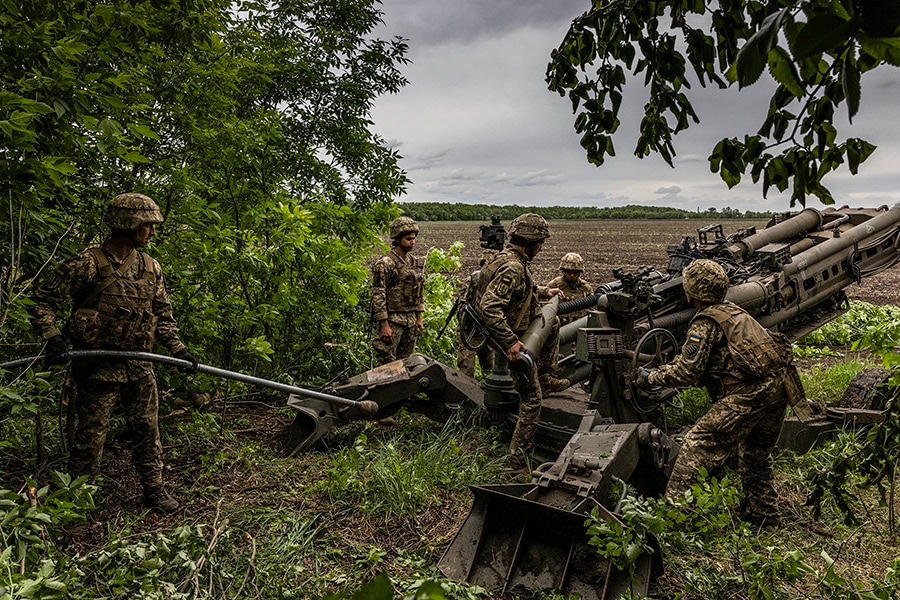
Drones. Crutches. Potatoes. Russians Crowdfund Their Army.
Across Russia, grassroots movements, led in large part by women, have sprung up to crowdsource aid for Russian soldiers
 Ukrainian troops load a Howitzer M777 155mm artillery piece in Donetsk region of eastern Ukraine on Sunday, May 22, 2022. A grass-roots movement to get basic supplies to soldiers fighting in Ukraine reflects the growing recognition among Russians that their military was unprepared for major conflict. Image: Ivor Prickett/The New York Times
Ukrainian troops load a Howitzer M777 155mm artillery piece in Donetsk region of eastern Ukraine on Sunday, May 22, 2022. A grass-roots movement to get basic supplies to soldiers fighting in Ukraine reflects the growing recognition among Russians that their military was unprepared for major conflict. Image: Ivor Prickett/The New York Times
Natalia Abiyeva is a real estate agent specializing in rental apartments in the city of Nizhny Novgorod, east of Moscow. But lately, she has been learning a lot about battlefield medicine.
Packets of hemostatic granules, she found out, can stop catastrophic bleeding; decompression needles can relieve pressure in a punctured chest. At a military hospital, a wounded commander told her that a comrade died in his arms because there were no airway tubes available to keep him breathing.
Abiyeva, 37, has decided to take matters into her own hands. On Wednesday, she and two friends set out in a van for the Ukrainian border for the seventh time since the war began in February, bringing onions, potatoes, two-way radios, binoculars, first-aid gear and even a mobile dentistry set. Since the start of the war, she said, she has raised more than $60,000 to buy food, clothes and equipment for Russian soldiers serving in Ukraine.
“The whole world, it seems to me, is supporting our great enemies,” Abiyeva said. “We also want to offer our support, to say, ‘Guys, we’re with you.’”
Across Russia, grassroots movements, led in large part by women, have sprung up to crowdsource aid for Russian soldiers. They are evidence of some public backing for President Vladimir Putin’s war effort — but also of the growing recognition among Russians that their military, vaunted before the invasion as a world-class fighting force, turned out to be woefully underprepared for a major conflict.
©2019 New York Times News Service




